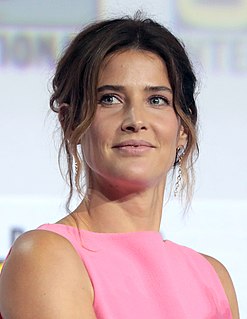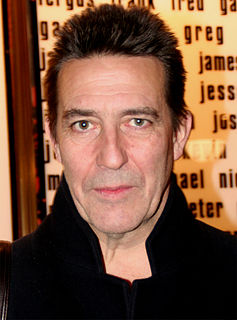A Quote by Maggie O'Farrell
I was interested in the ripples of feminism passing through Britain and Ireland in the mid-Seventies - how the reverberations of the feminist political movement were being felt in suburban households. So many novels end with a marriage.
Related Quotes
I consider myself 100 percent a feminist, at odds with the feminist establishment in America. For me the great mission of feminism is to seek the full political and legal equality of women with men. However, I disagree with many of my fellow feminists as an equal opportunity feminist, who believes that feminism should only be interested in equal rights before the law. I utterly oppose special protection for women where I think that a lot of the feminist establishment has drifted in the last 20 years.
I know I certainly wouldn't be writing books if it hadn't been for the feminist blogosphere, and I think that's a really amazing thing. And just the sheer power of outreach I think is incredible. It used to be that if someone was to get involved in feminism, it was probably because they were already interested. They were already interested in feminism; they were already interested in being an activist, and they found their way to like a NOW meeting or to a consciousness-raising group or something like that.
When my family moved from Ireland in the 70s, Britain was such a difficult place to be Irish. It was a decade of real social and economic upheaval in Britain. There were strikes, the three-day week, the oil crises, huge inflation, the winter of discontent and, what was it, four Prime Ministers? And relations between Britain and Ireland at that time were at an all-time low. I was born in the year of Bloody Sunday and of course the pub bombings happened in the mid-1970s.
It used to be that if someone was to get involved in feminism, it was probably because they were already interested. They were already interested in feminism; they were already interested in being an activist, and they found their way to like a NOW meeting or to a consciousness-raising group or something like that.
The idea of being a feminist-so many women have come to this idea of it being anti-male and not able to connect with the opposite sex-but what feminism is about is equality and human rights. For me that is just an essential part of my identity. I hope [Girls] contributes to a continuance of feminist dialogue
I believe I was raised with feminist values, but I don't think I ever heard my Mom call herself a feminist. Before I identified as a feminist myself, I thought of feminism as more of a historical term describing the women's movement in the '70s but didn't know much about what they had done and didn't think it applied to my life at all.
It's the reason why so many people left Britain like I did in the mid 60s because Britain was exactly the same then as America is today, getting ready to redistribute social wealth and it didn't work. You've seen that in places like Greece, Portugal, Iceland, Ireland where the entire country's business has collapsed, gone bankrupt. That's where America is heading.
It is obvious that many women have appropriated feminism to serve their own ends, especially those white women who have been at the forefront of the movement; but rather than resigning myself to this appropriation I choose to re-appropriate the term “feminism,” to focus on the fact that to be “feminist” in any authentic sense of the term is to want for all people, female and male, liberation from sexist role patterns, domination, and oppression.
Radical militant feminist believes that women of color and Black women in particular have written the cutting edge theory and really were the individuals who exploded feminist theory into the directions that has made it more powerful. So I see us as the leaders not just of Black people and Black women in terms of feminism but in terms of the movement as a whole.
There was no real strategic decision about editorial tone. It was kind of a write whatever you want to write, and we'll see how it goes. I think that we lucked out in that all of the women who started writing at Feministing.com were really funny, and I don't think that's something people are used to seeing or hearing when they read feminism. You know, you think feminism and you kind of think academic, women's studies, dry, humorless; there are all of these stereotypes that go along with what feminist thought is and what feminist writing is.



































